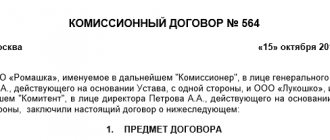A franchise agreement is a document, according to the terms of which, one party, called the franchisor, provides the other, who received the name franchisee, that is, the “user,” with a certain set of rights. The essence of this transfer is that the party who is lucky enough to obtain the rights can make or sell a certain product without infringing copyright. That is, the user performs the functions of a representative, but only within the framework of a franchise agreement.
Most often, this is a commercial activity, although this type of agreement is in great demand in the business field. Moreover, both parties receive benefits, because both one and the other receive considerable profits from cooperation, the business is promoted and more. The franchisee, that is, the user, can work using the name and reputation of a well-known brand. Business risks that can affect the activities of every young entrepreneur are reduced. But when he is “under the wing” of a well-known brand, the risks that they will not want to work with him are significantly reduced, since there is an opportunity to use the reputation of the patron. As for transferring the franchise under an agreement on the part of the franchisor, its benefits are obvious, since through the franchise it expands its business.
What is a franchise agreement
Many entrepreneurs choose to sell a franchise as a way to expand their business without investing virtually anything into it. The main work is carried out by a representative who has been given the rights to develop his business, offering him to use the developments of an already promoted enterprise. In this case, responsibilities are distributed between the parties. Here are some features associated with this agreement:
- The form of the agreement must be exclusively written;
- In the “parties to the agreement” column, you must indicate the names “copyright holder,” that is, the owner of the business who sells the franchise and the user who buys it. If the transaction involves cooperation with foreign companies, then the franchisor and franchisee will be considered parties to the agreement. It is advisable to use these names so that there are no misunderstandings;
- Rights can be transferred to both legal entities and individuals. Both parties can have any named status. It will not interfere with the transfer of rights;
- You cannot transfer rights to services that do not exist. That is, franchisees do not have the right to perform commercial manipulations that are not specified in the agreement;
- As for the subject of the contract, its qualities include the use of objects of intellectual property rights. Simply put, these are industrial designs, trade secrets, the right to use a trademark name, know-how and more.
- A commercial franchise agreement must be registered. The features of this process are regulated by the Civil Code.
Kinds
Today there are two main types of franchising:
- Franchising services. Most foreign companies actively purchase or rent centers in Russia to train workers, supply special equipment, and control the work process. A striking example of franchising;
- Franchising of goods. We are talking about the supply of equipment by the franchisor, technology transfer, permission to use the company logo, financing of a PR company and advertising. Thus, sales networks for the popular product are being established throughout the country.
Franchising has become the most popular form of attracting foreign investment to the country and has had a strong influence on partnerships between entrepreneurs from different countries.
However, it is always worth remembering that a company that provides the opportunity to work on its own behalf constantly manages the work process and does not provide the opportunity for creativity or departure from standards. If you want to make a profit in a short time and do not have plans to implement your own unique project, then franchising will be an excellent solution.
Parties to the franchise agreement
As already mentioned, a concession is concluded between the parties to the contract, which are the copyright holder and the user. Only the following can obtain the title of franchisor and franchisees:
- Commercial legal entities;
- Individual entrepreneurs;
- Trustees, but only in exceptional cases.
Franchising can be used solely for the purpose of obtaining commercial benefits and profits. As for the second party to the transaction, the conditions here are almost the same as for the copyright holder. With the exception that sometimes special requirements are put forward to him. The development of these original conditions is carried out by the company drawing up the commercial concession agreement, and the party that is interested in the franchise decides whether it meets those standards.
Here are some very reasonable requirements for franchising:
- Relatively extensive experience in the market. Of course, no one demands that the company operate for many years. But if the company takes its responsibilities seriously and can keep the bar, then the franchise will be granted;
- There are often requirements for the number of employees of franchisees. It is difficult to identify any pattern here, since this factor is individual;
- Last but not least, they are interested in the ownership of real estate, especially if a case is being considered that involves some type of proceeding;
- Perhaps it would not be amiss to clarify that for a company that wants to become a franchise owner, it is imperative to have a crystal clear business reputation. Huge companies that have been working on their reputation for decades will not cooperate with dubious enterprises that may well abuse the prospects that have opened up, and will most likely ruin a business that has been created for too long;
- And of course, before signing contracts, the number of assets must be clarified.
Rights and obligations of the parties
Every business has its own rules. If a franchise is taken up, then one company must comply with the requirements dictated by the other. But there are other nuances of cooperation that appear after the commercial concession agreement is signed. Let's start with the responsibilities of the rights holder, who must do a lot before transferring some of his rights to the consumer:
- The first thing the copyright holder must do is provide the user with documentation. This will allow you to avoid typical mistakes on both sides. In particular, the documentation should be technical and commercial; literally all the company’s secrets should not be revealed. But at the same time, concealing information is also not in the interests of the copyright holder. But it will concern only those aspects of the business that relate to the franchise.
- And now, it is necessary to indicate what the user must do. There are not many tasks within his competence, and the responsibility at the stage of obtaining information is minimal. When the agreement is signed, the range of responsibilities will increase significantly, according to the data that was indicated there.
- This party ensures state registration of the franchise agreement;
- Describes those conditions that control contracts. Thus, it becomes much easier to control the quality of the work performed/provided/produced that was transferred through a commercial concession agreement.
- Receive data from the copyright holder and use it for its intended purpose. Often the rights extend to the use of the brand name, that is, to be marketed as a subsidiary of the parent company;
- The recipient must follow the instructions exactly and use the samples provided by the copyright holder. The main thing is to end up with the same product (if we are talking about it). In general, maintaining quality should be a priority. You cannot violate any clause that relates to the standard contract.
Only if each party fulfills its responsibilities and remembers each other's rights, something will come of this case. That is why there is such a strict selection among companies wishing to obtain a franchise. But in Russia, franchising is not yet very popular, since businessmen cannot understand its rules. This is what causes thousands of lawsuits.
Taxation under a commercial concession agreement
It is important to know that when concluding a franchise partnership, only the right to use certain rights and a package of documents with information, as well as technologies and know-how related to the copyright holder, are registered. In this case, the latter does not lose his rights.
Many people are interested in the taxation system when concluding concession agreements. Since the franchisee pays the franchisor remuneration according to the papers, it, in accordance with the law, is subject to VAT. Also, when carrying out accounting, you should know that property and advertising taxes are paid by the franchisor.
To conclude contracts and work with franchise documents, you need to register as an individual entrepreneur or as an LLC. At the same time, it is possible to keep records under the general taxation system and under the simplified taxation system. The Russian tax system has not yet introduced a distinction between simply running a business and running a franchise.
In international practice, a franchise agreement is common when starting a business. In Russia, the history of franchising goes back only 20 years, so not all legal and economic subtleties are provided for by law. But our country is gradually immersing itself in global economic processes, and therefore the number of entrepreneurs working under franchises, including international ones, is increasing every year. Its operation is regulated by the Civil Code, so you can enter into a franchising partnership without any problems.
What should a sample franchise agreement contain?
In order to draw up a contract correctly, you need to know how to do it correctly. In order not to get confused with the contents, you will need to use not only samples of ready-made documents, but also, if possible, use the services of professionals. Especially when it comes to large companies that have their own staff of lawyers, and they are always ready to make a sample in accordance with all the rules and laws. But if professionals are not available to your services, then you have to take care that standard examples of contracts found on the Internet are used correctly.
So what should the document contain? The main thing is that the key points consider all the nuances of the relationship between the contracting parties. Literally every nuance. The franchise agreement has essential terms, which are drawn up using current Russian legislation. The established judicial practice is also taken into account. As a result, the following components of the agreement can be distinguished:
- Item.
- Scope of transferred rights.
- Terms of remuneration, when they will be transferred and in what amount.
Each of these points can be considered for a very long time, because they have many nuances. First of all, it is necessary to discuss the scope of transferred rights. In particular, it should be about what the copyright holder conveys:
- Brand of the entire network or only partial right to use the company name, for example, in official documents;
- Possibility to use a trademark;
- Is it possible to use a well-developed business model?
- Is it possible to use the developed know-how;
- What technology is used to manufacture the product and its disposal, if the need arises.
In general, the business concept needs to be transferred almost completely, since this is in the interests of both the business owner and the party that is interested in obtaining rights.
Naturally, you have to pay a set fee for this, and it is also indicated as a separate clause of the contract. That is, the commercial concession agreement is the source of all information on the transaction.
Concept and parties to a franchising agreement
A franchise agreement is a document signed by two parties. The agreement regulates the relations of the two parties. According to it, one party grants the other the right to use business principles, technology, a trademark, as well as the developed strategy of the franchisee. In this case, one of the franchising participants may be a representative of a foreign company.
The essence of the document is the transfer of exclusive rights to information about doing business, as well as assistance in personnel training and technology.
The partnership is two-way. The first party (franchisor), in the Russian version the copyright holder is a central company that transfers all commercial information for the use of the second party (franchisee or user). The scope of information and the right to use it are discussed in writing between the parties. The term of the agreement may be definite, but it may also be concluded for an indefinite period. The territory in which this document is valid is also discussed.
According to the laws of the Russian Federation, a commercial concession partnership can be concluded on behalf of commercial organizations or individuals who are registered as individual entrepreneurs. Individuals cannot enter into a commercial concession agreement. You can find out whether it is better to choose an individual entrepreneur or an LLC here.
How can I pay for a franchise?
The franchise agreement is not free of charge. This is stated in the law. Therefore, the parties who are trying to sign it must indicate and explain in the text all issues of a financial nature. The amount and other nuances are not determined by law. This is strictly case-by-case, so parties may rely on their own business assets to indicate fair value.
If the sample agreements are left without this clause, then Rospatentr has every right to refuse registration of the said agreement, as stated in paragraph 3.4.9 of Recommendation No. 186. But if the agreement itself does not contain the information in question, then you can provide a link to the additional agreement. Which just regulates the financial relations between the parties, if this clause was ignored in the agreement itself.
The franchise can be paid as follows:
- Fixed one-time payment;
- Periodic fixed payments;
- Payments are a percentage of revenue, that is, the higher the revenue, the more you earn;
- As a markup for the wholesale sale of goods that were transferred by the franchisor for further sale.
But this is not the only example of what can be done to implement a business and pay for a franchise. If payment is not made, or the terms of its provision do not suit one of the parties, it is possible to bring the culprit to justice through the payment of a penalty or fine.
Typical franchising mistakes
To get a profitable business and profit, you need to avoid mistakes. And to do this, first of all you need to find them. As a rule, 7 errors are identified.
- Use terms correctly. To ensure that the essence of the document is not distorted, it must be drafted correctly, using competent legal language. It’s even better if you can hire a professional.
- The franchisee paid before the forms were transferred to Rospatent, or the document was not registered. That is, the person gave money for a note that has no legal force.
- Rospatent has not verified the trademark registration.
- Another typical mistake can be considered if the franchisor tries to limit the franchisee in selecting a supplier.
- The agreement does not indicate the territory where the franchisee can operate.
- It is not specified what responsibility the franchisor bears.
- The agreement does not contain an end date for the parties' cooperation.
As an example, you can use sample documents on the Internet. This is convenient because you can, without turning to professionals, draw up a correct contract, without the above errors.







